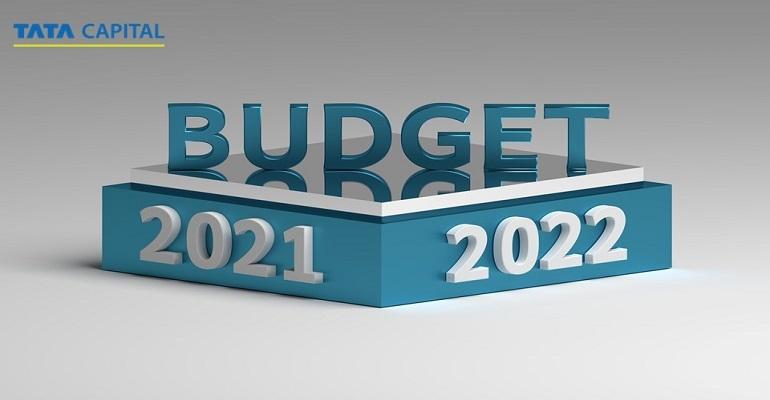The India Budget 2021 is highly anticipated to bring about some much-needed structural changes in the Indian economy. Post the devastation caused by the coronavirus pandemic, this budget is expected to set things straight. India’s Finance Minister, Nirmala Sitharaman presented her third union budget in the Lok Sabha earlier today. She has allocated a substantial amount towards COVID-19 vaccines and increased the allocation for Foreign Direct Investment in India.
Shifting from the previous fiscal year’s theme of “Ease of Living”, the annual budget of 2021 largely revolved around COVID-19 reparations and economic recovery. With the demand side facing a significant dip and growth coming to a standstill, the job crisis also became worse in 2020. Moreover, the country was rocked by the working class’s agitations that led to a major disruption and need for change. The union budget 2021 highlights present resolutions for the same.
The Indian government rolled out a total of three Atma Nirbhar packages in 2020 to combat the effects of the novel coronavirus. These were valued at Rs. 27.1 crores, estimated to be over 13% of the Indian GDP. Moving forward, Sitharaman announced that the annual budget 2021-22 will rest on the following six pillars:
- Health and well-being
- Physical and financial capital and infrastructure
- Inclusive development for aspirational India
- Reinvigorating human capital
- Innovation and research and development
- Minimum government and maximum governance
This was also the first digital budget, presented on a “make in India” tablet. Without further ado, let us glance over the union budget 2021 summary.
Investment in healthcare and wellbeing infrastructure
- The investment in healthcare shall increase substantially to fast-track recovery.
- The major takeaways from the pandemic-ravaged year of 2020 have led to a focus on three healthcare measures: preventive, curative and well-being.
- The health systems will be solidified by a newly introduced centrally sponsored scheme, the Prime Minister Atma Nirbhar Swasthya Bharat Yojana. Being launched with an outlay of over Rs. 64,180 crores, this will work towards developing the primary, secondary and tertiary healthcare institutions.
- In addition to the National Health Mission, this will support urban and rural health care centers, set up integrated health and wellness labs, establish block health units in 11 states, and establish critical care hospital blocks in 602 districts.
- Strengthening of the National Centre for Disease Control and its five regional branches.
- The Supplementary Nutrition Program and the Poshan Abhiyan will be combined to launch the Mission Poshan 2.0 to improve nutritional outreach and outcomes across 112 aspirational districts.
- Jal Jeevan Mission will be launched, aiming to provide universal water supply across 4378 urban local bodies via tap connections and liquid waste management. It will be implemented over five years with an outlay of Rs. 2.87 lakh crores.
- Urban Swachh Bharat Mission to be implemented over five years with an allocation of Rs. 1.41 lakh crores.
- Rs. 35,000 crores to be allocated towards COVID-19 vaccine.
- Total increase of 137% in budget allocation towards healthcare, as opposed to 2020-21.
Physical and financial capital and infrastructure
Sitharaman announced that the manufacturing sector needs to undergo sustained growth and become a part of global supply chains for the country to become a five trillion dollar economy.
- The government will commit Rs. 1.97 lakh crores over 5 years to establish PLI schemes across 13 sectors.
- A scheme of Mega Investment Textile Spark will be launched to make India’s textile industry globally renowned and competent. Seven textile parks to be established over three years.
- The National Infrastructure Pipeline, initially announced in December’19 with 6835 projects has now expanded to 7400 projects.
- Sitharaman announced that she will set up a bill towards the Development Finance Institution (DFI), and that the country should have a lending portfolio of Rs. 5 lakh crores in three years.
- The FM proposed the construction of a fintech hub in Gujarat International Finance Tech (Gift) city.
Asset monetization
- An asset monetization dashboard will be launched to keep track of investments and provide visibility.
- The Finance Minister has proposed a sharp increase in capital expenditure for theannual budget of 2021-22, and has provided Rs. 5.54 lakh crores, 34.5% more than the previous fiscal year.
- More than Rs. 2 lakh crores will be awarded to autonomies and states for their capital expenditure.
Roads and highways infrastructure
- The BharatMala Pariyojana Project will see an addition of 8000 kilometers and completion of 11,000 kilometers of the national highway corridors in another three years.
- 3500 kilometers of national highway stretch in Tamil Nadu at Rs. 1.03 lakh crores, 1100 kilometers in Kerala at an investment of Rs. 65,000 crores, 675 kilometers of highway works in West Bengal at Rs. 25,000 crores will be in the works.
- An increased outlay of Rs. 18,101 crores will be provided to the Ministry of Road Transport and Highways.
Railway infrastructure
- The National Rail Plan has been introduced to create a futuristic railway system by 2030.
- The Vista Dome will be introduced to improve passenger experience.
- Eastern and Western railway corridors will be completed by 2022, Sitharaman proposed.
- A record sum of Rs. 1,10,055 crores will be provided for the railways.
Metro rail and public transport
- A new scheme with an investment of Rs. 18,000 crores will be introduced to augment the city bus system and metro system in urban areas.
- Private sector is invited to maintain and acquire over 20,000 buses.
- Adding to the current operational metro system, over 1000 km will be added in 27 cities. The MteroLite and MetroNeo will be deployed at a much lower cost in tier 2 cities.
- Bengaluru, Chennai, Kochi and Nagpur metro rail projects will get further allocation.
Financial capital
- Sitharaman has proposed to consolidate the provisions of the Depositories Act, SEBI Act, Securities Contracts Regulation Act and Government Securities Act into a single Market Code.
- SEBI will be signified as the regulator of gold exchanges within the country.
- She proposed to amend the Insurance Act to increase the FDI limit from 49% to a significantly greater 74%.
- After successful completion of the decriminalization of offences under the Companies Act, the FM has now proposed to decriminalize the Limited Liability Partnerships Act.
- An E-Code system shall be implemented for MSMEs and easy debt resolution. This will include the rolling out of artificial intelligence, data analytics, artificial intelligence for e-scrutiny and e-consultation.
- The IPO of LIC will be introduced in the India budget 2021.
- NRIs can rejoice as the new India budget 2021 proposed to reduce the residency limit for NRIs from 182 to 120 days and eased the norms for opening a One Person Companies (OPC). Also, NRIs are now relieved from the burden of double taxation on accrued retirement money.
- From FY2021, companies with paid up capital of Rs. 2 crores and annual turnover of Rs. 20 crores will fall under the small companies category. Previously, this threshold was Rs. 50 lakhs and Rs. 2 crores respectively.
Taxes and customs duty
- The FM has extended tax holiday for startups for one year, owing to COVID-19.
- Sitharaman proposed a review of over 400 old exemptions in indirect taxes.
- Senior citizens above the age of 75 whose only source of income is pension or interest will not have to file ITR.
- Filing of ITR will now be easier as details of dividend, interest, income and capital gains can be pre-filled.
- The customs duty on gold and silver has been rationalized and brought down to 7.5% from the previous 12.5%, as stated by Sitharaman in her union budget 2021 speech.
- On the other hand, customs duty for auto parts has been doubled from 7.5% to 15%.
- The ministry also approved a farm cess of Rs. 2.5/litre on petrol and Rs. 4/litre on diesel.
Agricultural and rural reforms
- The annual agricultural credit will be increased to Rs. 16.5 lakh crores.
Voluntary scrappage for vehicles
- The Union Finance Minister announced a voluntary scrappage policy for vehicles, wherein personal vehicles older than 20 years and commercial vehicles older than 15 years will be eligible for retirement.
- This could lead to the phasing out of more than 6.8 million old vehicles.
Banks
- Finance Minister Nirmala Sitharaman announced that Public Sector Banks will get a recapitalization of Rs. 20,000 crores in this fiscal year.
- To manage non-performing loans, the government will set-up a bad-bank structure, which will be regulated by an asset management company.
Digital payments
- The Finance Minister earmarked Rs. 1500 crores to augment digital transactions. A scheme will be proposed to provide financial incentives and boost the usage of digital mode of payment.
Rajiv Sabharwal, Managing Director and CEO, Tata Capital said, ‘FM Sitharaman’s 6 pillared budget is progressive and growth inducing in more ways than one. Push to infrastructure, healthcare and education and extension of tax holidays for startups and affordable housing projects are exactly the reforms that our economy needs for growth.
Budget 2021 will benefit the real estate sector in the form of extension of interest deductions and tax holidays for affordable housing projects. The Vehicle Scrappage policy will be a big boost for the Auto sector. Allocating funds for digital adoption and providing incentives for the same will facilitate digital inclusion and greater transparency in the financial services ecosystem. This is a great motivator for companies to continue innovating.’
The takeaway
The fiscal deficit is pegged to be at 9.5%, while Sitharaman announced that the government will be making additional borrowings worth Rs. 80,000 crores to recover from the expenditure of 2020. The India budget 2021 has made it clear that the upcoming fiscal year will focus on digitization and infrastructural development. The total year-on-year increase in spending is expected to be around 15%.


 8 mins read
8 mins read

 Previous Post
Previous Post









